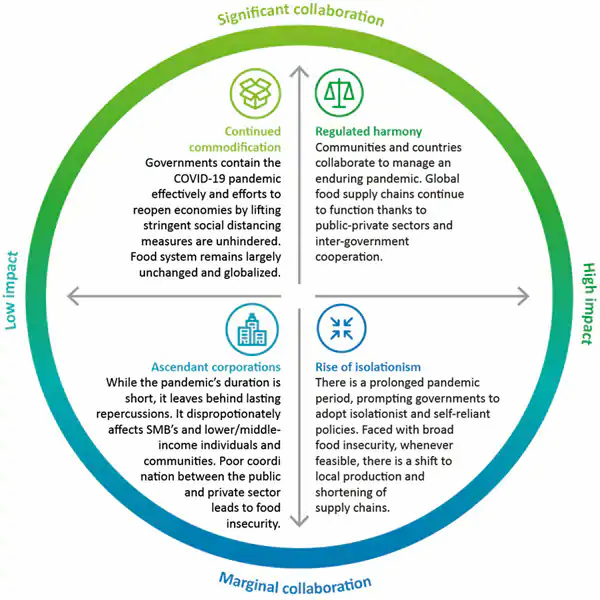Lessons for the food system from the COVID-19 pandemic
Can the crisis act as a catalyst to accelerate the critical conversations around reforming global food systems?
Executive summary
The COVID-19 pandemic has challenged every fabric of modern society and has also exposed vulnerabilities in the food system. The report, A shock to the food system, evaluates the impact of the pandemic on actors in the food system—producers, processors, distributors, and consumers—and the actions they can consider to recover and thrive.
There are underlying flaws in the current modern food system which is interconnected and focused on maximizing value. Long, rigid supply chains disconnect producers and consumers—resulting in food loss and value distortion. The restricted availability and affordability of healthy and nutritious food disproportionately affects the most vulnerable populations.
Although the dust has not settled on the impact of the crisis, it is becoming increasingly clear that the system needs to be more resilient. Food security—the reason the system exists—is dependent on its ability to respond to times of volatility.
The report analyzes different potential scenarios and their impact on the food system for stakeholders across the value chain. These scenarios inform recommended actions that actors along the value chain can take to recover and thrive moving forward.
Figure. Four global scenarios for the food system
gx-cb-a-shock-to-the-food-system.pdfDownload PDF • 1.05MB



Comment here